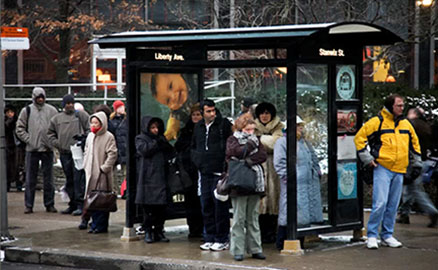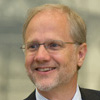
If you’ve spent any time talking with me about Pittsburgh, you’ve heard my speech – possibly too often – about the “moment in time” I believe we’re living in. This is the idea that keeps me awake at night and propels me through every workday: Thanks to a variety of factors, over the next five to ten years Pittsburgh will reshape its destiny for at least the next generation and perhaps beyond, and those of us privileged to be here right now, especially those in any kind of leadership role, have an almost sacred responsibility to help get it right.
I feel the same way about the planet, by the way. Pittsburgh is sitting at an interesting intersection of local, national and global dynamics – everything from climate change to the shifting nature of community – which gives us a rare opportunity to simultaneously help ourselves and the world around us. What we do now matters; these are consequential times.
Usually what I get back from people here when I share that sentiment is vigorous agreement followed by some form of this question: “I get it, but what are we aiming towards? What does ‘getting it right’ mean?”
As a community, I suspect we are a ways off yet from agreeing on any kind of collective vision for our future. But I think I know what it is for my colleagues and me, and what I suspect many of us in this region’s robust social sector are pointing toward. It can be summed up in two words: Just Pittsburgh.
For the Endowments, I love the double sense of that phrase. By charter and choice, the work of this foundation is about the Pittsburgh region. We are firmly rooted in place and anchored in community. Our work is not about some vague ideal or disembodied goal; it is, rather, about a real town, and real people, and the fragile but resilient bonds that hold us together and give us a shared destiny and purpose beyond ourselves.
Yet we know, too, that no community exists in isolation and that now more than ever our fate is tied to the fate of the world around us. “Just Pittsburgh” is at once an invitation to focus on this place and this time, and a challenge to remain fully engaged in the defining issues facing human societies across the globe and to embrace the best ideas, innovations, lessons and models from the expanding global laboratory of human endeavor.
But “Just Pitsburgh” has a second set of meanings as well, rich with nuance and history: fair, unbiased, and evenhanded; moral, ethical, and good; reasonable, sensible, and sound. It’s amazing to me that a word steeped in such values, values that for most of us lie at the core of the American ideal if not our lived experience, could have been become as controversial as it seems to be today.
I started thinking about what a “Just Pittsburgh” would look like after hearing from Angela Glover Blackwell at our p4 Conference last year and then meeting Toni Griffin, whose passion is to mine the intersection of urban design, community development and social justice for a framework to create the “just city.” We’ve since engaged both Griffin individually and Blackwell’s Policy Link as part of a broad effort to think through how Pittsburgh can embrace equity as core to its ongoing rebirth.
Probably every one of us has our own take on what a truly Just Pittsburgh would look like. For us at the Endowments, we have some clear ideas. A Just Pittsburgh would want to remove the deeply ingrained barriers that disadvantage some of us simply because we are black, female, poor or somehow “other.” It would not treat racism as a “black problem,” gender-based violence and discrimination as “women’s issues,” or rising rates of poverty as a problem only for the poor; it would, rather, see the role of entrenched power, and demand a shared response to a dynamic that diminishes us all.
It would open its arms in a wide embrace, unafraid of difference, aware that no person and no community has ever been made less by opening their hearts and minds more.
It would joyfully embrace its rebirth and the promise of a brighter future. But it would be intolerant of hiding behind one Pittsburgh celebrated in “best of” lists while letting a second Pittsburgh languish in poverty and discrimination. It would be intolerant of schools that underperform year after year after year, and of systems that fail to protect and prepare all children for successful lives.
It would protect its air and water quality, and not just in affluent neighborhoods, but everywhere, for everyone. It would care about public health and how its residents are faring, black or white, rich or poor. It would care that the benefits and rewards of its redeveloping neighborhoods are broadly shared with the people who already live there, especially those whose poverty and lack of influence make them so tragically easy to cast aside.
It would value its creative soul. It would nurture art, culture and creativity. It would celebrate both its great cultural institutions and the child from Homewood making a film on his iPhone. It would weave the capacity for innovation and creativity into everything from how it educates its children to how it redevelops its neighborhoods.
It would embrace leaders who aspire to transformation, not mediocrity. It would care about science, facts and data. It would tolerate the pain and discomfort of difficult conversations with people whose emotions are raw and deep and real.
Most of all, it would operate from a place of love and respect.
If that seems outlandish, a bridge too far in a city known for its bridges, all I can say is this: Right now, at this very moment, after decades of struggle, Pittsburgh is changing, as is the world around us. Is our dream to become the “next Houston” or a center of innovation and creativity? Will we be a place that reinvents learning or fights for the status quo? Will our new prosperity be broadly shared or benefit only some?
Years ago, our chair, Teresa Heinz, wrote that “places become what people dream.”
Never has that been more true than it is right now. If we are willing to dream of a Just Pittsburgh, we can create it—we simply have to want to try.
Photo credit: Melissa Farlow
Written by:

Grant Oliphant
President
